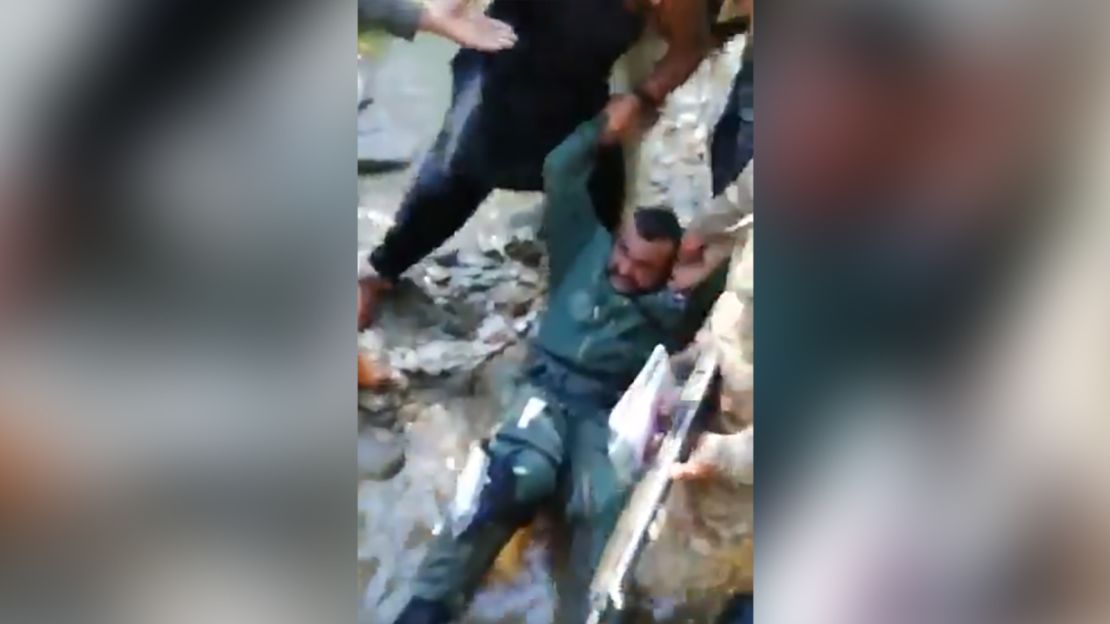Pakistan says its air force shot down two Indian fighter jets over the disputed border region of Kashmir, in a significant escalation of the crisis between the two nuclear-armed powers.
India confirmed the loss of one plane and said it shot down a Pakistansi jet as it responded to the incident. Pakistan claimed to have captured an Indian pilot and, to India’s fury, published a video of him. India demanded his safe return.
The confrontation came a day after India said it launched airstrikes in Pakistan territory in the first such incursion by Indian air force planes since the India-Pakistan war of 1971.
India and Pakistan both control parts of Kashmir, but each claims the region in full. The latest skirmishes are the most serious crisis over the disputed border area in years.
Pakistan’s Prime Minister, Imran Khan, said neither side could afford “miscalculations” and that any further escalation would be beyond his and Indian Prime Minister Narendra Modi’s control.
Pakistan’s chief military spokesperson, Maj. Gen. Asif Ghafoor, claimed two Indian jets were downed in Wednesday’s operation. One fell inside Pakistan-controlled Kashmir, while another went down in the Indian-controlled region of Kashmir, he said on Twitter.
Ghafoor initially claimed two Indian pilots were arrested and said one was being treated for injuries in a military hospital. But on Twitter later Wednesday, he said only one was in military custody.
India said that it had lost only one aircraft but confirmed one pilot was missing after the Pakistani strikes. Indian Foreign Ministry spokesperson Raveesh Kumar said an Indian air force plane retaliated, shooting down a Pakistani jet, which fell on the Pakistan side of the border.
Pakistan later released what it said was a video of the detained Indian pilot, identifying him as Wing Comd Abhinandan.

India called the move a “vulgar display” and “unprovoked act of aggression” that “violates all norms of international humanitarian law.” A Foreign Ministry said Pakistan should return him immediately. “It was made clear that Pakistan would be well advised to ensure that no harm comes to the Indian defense personnel in its custody,” India’s Foreign Ministry said, after summoning a Pakistani diplomat. “India also expects his immediate and safe return.”
Pakistan closed its airspace for a time on on Wednesday. A number of Indian airlines announced the suspension of flights to several Indian airports. Flights later resumed.
Tensions at crucial time
The escalating tensions come at a politically crucial time for India, which is scheduled to hold national elections by the end of May.
The immediate trigger for the latest confrontation was a suicide car bomb attack on February 14 in Indian-controlled Kashmir, which killed 40 Indian paramilitary soldiers. India blames the militant group Jaish-e-Mohammed (JeM) for the attack, the deadliest on security forces since the beginning of the insurgency in the late 1980s.
India has accused Pakistan of having a “direct hand” in the attack – the deadliest on security forces since the beginning of the insurgency in the late 1980s. Pakistan has vehemently denied having a role in the incident.
Indian Foreign Affairs Minister Sushma Swaraj said his country’s strike into Pakistani territory on Tuesday was “not a military operation” but “a preemptive strike against the terrorist infrastructure of Jaish-e-Mohammed.”
She said the operation was launched because of the “continuing refusal of Pakistan to acknowledge and act against terror groups on its territory.” But Swaraj added that said India does not want “further escalation” with Pakistan.
Pakistan’s Foreign Ministry said it had responded with aerial strikes on “nonmilitary targets” across the line of control (LoC) from within Pakistani airspace, claiming to have avoided “human loss and collateral damage.” It accused India of “carrying out acts of terror in Pakistan.”
The purpose of the strike was to demonstrate the country’s self-defense capabilities, the Foreign Ministry said. “We have no intention of escalation, but are fully prepared to do so if forced into that paradigm. That is why we undertook the action with clear warning and in broad daylight,” the statement said.
Calls for restraint
Britain’s Prime Minister Theresa May called for “restraint on both sides,” telling Parliament Wednesday that the UK was working closely with international partners to “de-escalate tensions.”
US Secretary of State Mike Pompeo spoke with his counterparts in India and Pakistan, and also urged restraint.
Kashmir, a largely mountainous region located between India and Pakistan, has been bitterly contested by both countries following partition in 1947, leading to three wars and numerous other skirmishes.
Skirmishes along the Line of Control have escalated since the alleged Indian airstrikes. On Tuesday, Pakistan troops opened fire at 15 places across the line in Jammu and Kashmir, injuring five Indian soldiers, army spokesperson Devender Anand told CNN.
Harsh V Pant, a professor in international relations at King’s College London, told CNN that for the past few decades the Indian government had generally not retaliated after terror attacks in Kashmir.
But India is now at a point where it is choosing to escalate the situation, he said, adding that India’s military action on Tuesday follows public anger over the February 14 attack.
CNN’s Nikhil Kumar and Swati Gupta reported from New Delhi, Adeel Raja and Sophia Saifi reported from Islamabad, Mukhtar Ahmed reported in Srinagar and Helen Regan wrote from Hong Kong.








